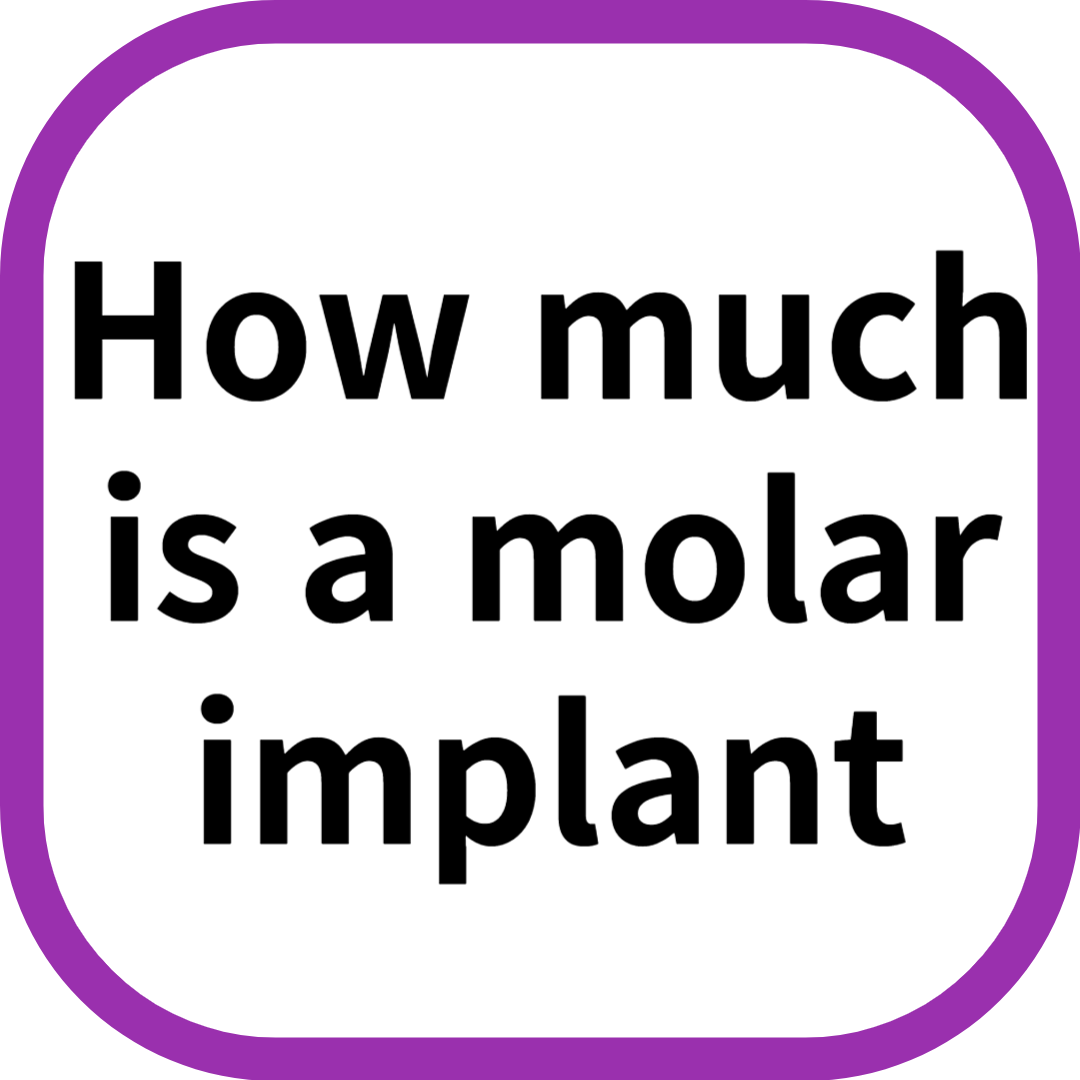The Cost of Molar Implants
When considering molar implants, one of the primary concerns is the cost.
The price of a single molar implant can vary significantly based on several factors, including the location of the dental clinic, the expertise of the dentist, and the specific needs of the patient.
On average, the cost of a molar implant in the United States ranges from $3,000 to $5,000 per tooth.
This price typically includes the implant post, abutment, and crown, but additional procedures such as bone grafting or sinus lifts can increase the overall cost.
It’s important to note that while the initial cost of molar implants may seem high, they offer long-term benefits that can make them a cost-effective solution in the long run.
Unlike dentures or bridges, which may need to be replaced or adjusted over time, molar implants are designed to be a permanent solution, providing durability and stability for many years.
Additionally, many dental clinics offer financing options or payment plans to help make the procedure more affordable for patients.
Comparing Molar Implants to Other Dental Restoration Options
When it comes to replacing missing molars, there are several options available, each with its own set of advantages and disadvantages.
Molar implants are often compared to dental bridges and dentures.
Dental bridges involve creating a bridge between two healthy teeth, with a false tooth in the middle to fill the gap.
While bridges can be a less expensive option, they require the alteration of adjacent healthy teeth and may not provide the same level of stability as implants.
Dentures, on the other hand, are removable appliances that can replace multiple missing teeth.
While dentures are typically more affordable and less invasive than implants, they can be uncomfortable and may require frequent adjustments.
Dentures also do not prevent bone loss in the jaw, which can occur when teeth are missing.
Molar implants, by contrast, integrate with the jawbone, helping to maintain bone density and providing a more natural look and feel.
Where and How to Get Molar Implants
Choosing the right dental clinic and dentist for your molar implant procedure is crucial for ensuring a successful outcome.
It’s important to select a clinic with experienced professionals who specialize in implant dentistry.
During the initial consultation, the dentist will evaluate your oral health, take X-rays or CT scans, and discuss your treatment options.
If you require additional procedures such as bone grafting, the dentist will explain the process and provide a detailed treatment plan.
The procedure itself involves several steps.
First, the damaged tooth is removed, and if necessary, the jawbone is prepared with a bone graft.
Once the jawbone is ready, the implant post is surgically placed into the bone.
This is followed by a healing period, during which the bone integrates with the implant in a process called osseointegration.
After the implant has fully integrated, the abutment is attached, and finally, the custom-made crown is placed on top.
The entire process can take several months, but the result is a stable and long-lasting replacement for your missing molar.
Post-Operative Care for Molar Implants
Proper post-operative care is crucial for ensuring the success and longevity of your molar implants. Here are some essential tips and guidelines to follow after your implant surgery:
Immediate Aftercare
Rest and Recovery: Take it easy for the first 24 hours after surgery. Avoid strenuous activities and rest with your head elevated to help reduce swelling.
Bleeding Control: It’s normal to experience some bleeding. Bite down gently on gauze for about an hour to help control it. If bleeding persists, use a moistened black tea bag, as the tannic acid can help form blood clots.
Pain Management: Over-the-counter pain relievers like Tylenol are recommended. Avoid NSAIDs like ibuprofen, as they can interfere with the healing process.
Oral Hygiene
First 24 Hours: Avoid brushing your teeth, rinsing your mouth, or spitting to allow the surgical site to begin healing.
Day 2 Onwards: Start brushing your teeth twice a day, but be gentle around the implant site. Use a soft-bristled toothbrush and avoid brushing your gums1. Rinse your mouth with warm salt water or a prescribed solution to keep the area clean.
Diet: Stick to soft foods like yogurt, smoothies, and purees for the first few days. Avoid hot, hard, or crunchy foods that could irritate the implant site.
Long-Term Care
Avoid Smoking and Alcohol: Both can significantly impact the healing process and increase the risk of implant failure.
Regular Check-Ups: Follow up with your dentist to monitor the healing process and ensure the implant is integrating well with the jawbone.
Maintain Good Oral Hygiene: Continue to brush and floss regularly, and consider using an antibacterial mouthwash to keep your mouth clean and healthy.
USD to KRW: Tips to Minimize Exchange Fees – nationalinfo (soomarket.com)
